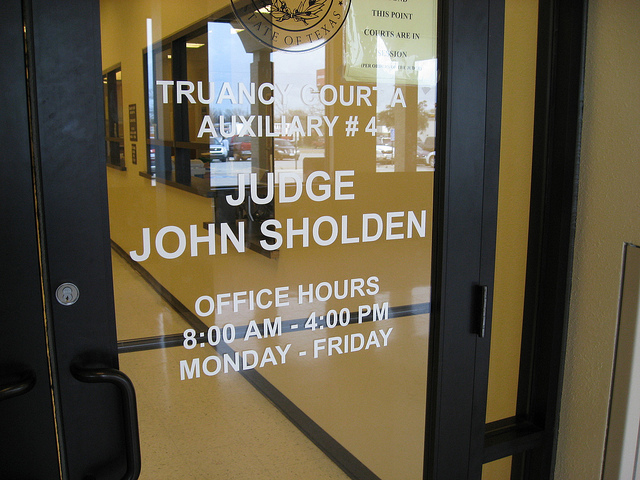Everything is bigger in Texas. However, when it comes to truancy laws Texas produces some statistics that are less than favorable compared to other states.
According to a recent report by the Appleseed Foundation, Texas charges 100,000 students for criminal truancy every year– more than any other state in the nation. The D.C.-based, non-profit, non-partisan social justice advocacy group says that’s more than twice the number of charges than every other state combined.
“The only other state, that we know of, that actually prosecutes truancy cases in adult criminal court rather than a juvenile court is Wyoming, and, as you can imagine, Wyoming has far fewer cases than Texas does,” says Deborah Fowler, executive director of Texas Appleseed.
Texas Appleseed’s report found that students who are classified as economically disadvantaged comprise about 80 percent of truancy cases in Texas. Students miss school because they are facing much bigger obstacles, like homelessness, not having clean clothes to wear to class, or even not being able to brush their teeth because they don’t own a toothbrush and are embarrassed to go to school.
“During our court-watching across the state, we’ve met families that are struggling with, for example, homelessness issues and their transience is effecting their ability to get the kid to school or get the kid to school on time,” Fowler says.
The report faults Texas’ truancy policies as a school-to-prison pipeline, with the criminalization of truancy or absenteeism as a direct cause of recidivism.
“Seventeen year-old students in Texas are considered adults, and because they’re being prosecuted in adult criminal courts they can end up in jail,” Fowler says.
With 20 bills currently on the Statehouse floor, Fowler says she’s encouraged by the level of engagement and hopes the policy will be reformed. Ideally, Fowler says schools would step up to help prevent truancy in the first place.
“Once they end up in court, we’d like to see their cases be prosecuted as civil rather than criminal cases,” Fowler says.
“We’re optimistic we’re going to see some good solutions.”
This story was prepared with assistance by Brenda Lau and Mackenzie Dunn.










